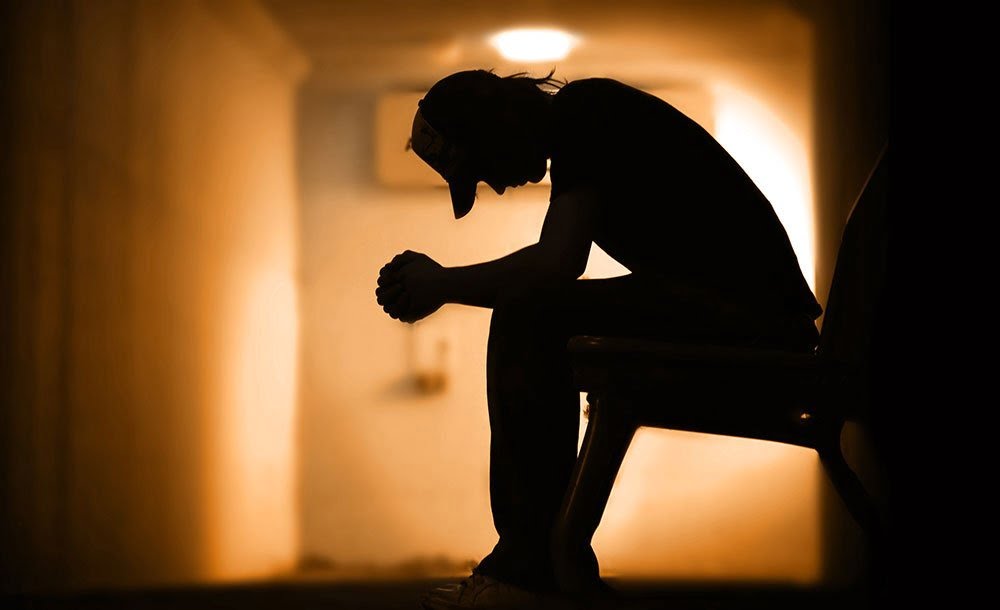What You Should Know About PTSD and Alcohol Abuse
Post-traumatic stress disorder (PTSD) and alcohol abuse are common co-occurring mental health disorders. Studies show that the relationship between the two can start with either disorder. For instance, a person struggling with PTSD may have issues with alcohol before and after developing PTSD. Struggling with PTSD increases the risk of alcohol abuse. On the other hand, having an alcohol problem increases the risk of traumatic events that can cause PTSD.

What is PTSD?
PTSD is short for post-traumatic stress disorder. It is a mental health disorder that can develop after a person experiences or witnesses a traumatic event. Traumatic events include military combat, physical or sexual assault, accidents, natural disasters, or the sudden death of a loved one.
A mental health professional, such as a psychiatrist or psychologist, typically diagnose PTSD. It can be treated through various forms of therapy, such as cognitive-behavioral therapy and medication. If you or someone you know is experiencing symptoms of PTSD, it’s important to seek help from a qualified mental health professional.
What are the Signs and Symptoms of PTSD?
The signs and symptoms of PTSD can vary from person to person but generally fall into four main categories:
- Intrusive Thoughts and Memories: This may include recurrent, unwanted, and distressing memories, nightmares, and flashbacks of the traumatic event. Some people may also experience intense emotional or physical reactions to reminders of the event.
- Avoidance Behaviors: Individuals with PTSD may avoid situations, people, or places that remind them of the traumatic event. They may also avoid thinking or talking about the event and have difficulty recalling important aspects of the event.
- Negative Mood and Thinking: This may include feelings of numbness, guilt, shame, fear, anger, or hopelessness. Individuals may also have negative beliefs about themselves or the world and may have difficulty experiencing positive emotions.
- Hyperarousal and Reactivity: This may include being easily startled or constantly feeling on edge, having trouble sleeping, experiencing angry outbursts or irritability, and engaging in reckless or self-destructive behaviors.
Symptoms of PTSD can be severe and persistent. They can significantly impact a person’s ability to function in their daily life. It is important to seek professional help if you or someone you know is experiencing these symptoms.
Why Do People Use Alcohol to Cope with Symptoms of PTSD?
People with PTSD may turn to alcohol to cope with the distressing symptoms of the disorder. Alcohol can temporarily relieve anxiety, insomnia, and other symptoms of PTSD. However, alcohol use can exacerbate PTSD symptoms over time. It also leads to additional problems, such as alcohol addiction, impaired judgment, and relationship problems.
Post-traumatic stress disorder can cause significant emotional pain and stress. Many people may struggle to find effective coping strategies to manage these symptoms. Unfortunately, alcohol can be a readily available and socially acceptable means of coping for some individuals.
Additionally, research suggests that people with PTSD may be more likely to struggle with substance abuse and addiction due to changes in the brain’s stress response system that can increase cravings for drugs or alcohol.
It’s important to note that while alcohol may provide temporary relief, it does not address the root cause of PTSD and can make symptoms worse in the long run. Treatment for PTSD should address both the underlying trauma and any substance use disorders that may be present. Therapy and other evidence-based treatments have been shown to be effective in helping people with PTSD manage their symptoms and achieve a better quality of life.

How Can Alcohol Abuse Intensify PTSD Symptoms?
Alcohol abuse can worsen PTSD in several ways:
- Increased Symptoms: Alcohol use can intensify PTSD symptoms such as anxiety, depression, and insomnia. In some cases, alcohol use can trigger flashbacks or intrusive memories, making symptoms more intense and harder to manage.
- Impaired Judgment: Alcohol use can impair judgment, making it harder to make rational decisions and increasing the risk of engaging in risky or self-destructive behaviors.
- Health Consequences: Chronic alcohol use can lead to various health problems, including liver disease, cardiovascular disease, and neurological damage. These health problems can compound the physical and emotional toll of PTSD, making it even harder to manage symptoms and maintain a good quality of life.
- Social Consequences: Alcohol abuse can lead to relationship problems, work-related difficulties, legal troubles, and financial instability. These problems can increase stress and anxiety, making it harder to manage PTSD symptoms and exacerbating the negative impact of the disorder.
Overall, alcohol abuse can worsen the symptoms of PTSD and make it harder to manage the disorder effectively. It is important for individuals to seek treatment to achieve lasting recovery and a better quality of life.
 PTSD is a common mental health condition among military personnel who have experienced combat. Combat-related PTSD can develop after exposure to traumatic events, such as witnessing or experiencing violence, injury, or death in combat.
PTSD is a common mental health condition among military personnel who have experienced combat. Combat-related PTSD can develop after exposure to traumatic events, such as witnessing or experiencing violence, injury, or death in combat.
Combat-related PTSD can be particularly challenging to treat. Military personnel may face unique challenges such as stigma, a sense of duty or loyalty, and difficulty adjusting to civilian life after deployment.
Symptoms of PTSD from combat can include:
- Re-experiencing the traumatic event: This may include recurrent nightmares, flashbacks, or intrusive memories of the traumatic event.
- Avoidance behaviors: Individuals may try to avoid anything that reminds them of the trauma, such as avoiding certain places or situations or avoiding talking about the traumatic event.
- Hyperarousal and reactivity: Individuals may be easily startled or have an exaggerated startle response, be irritable or have angry outbursts, and have difficulty sleeping.
- Negative changes in mood and thinking: Individuals may experience negative mood changes, including feelings of guilt, shame, or worthlessness. They may also have difficulty experiencing positive emotions like happiness or love.
- Cognitive difficulties: Individuals may have trouble concentrating, making decisions, or remembering important details.
- Physical symptoms: Individuals may experience physical symptoms such as headaches, gastrointestinal distress, and chronic pain.
Treatment for PTSD from combat typically includes evidence-based therapies such as cognitive-behavioral therapy (CBT) or Eye Movement Desensitization and Reprocessing (EMDR) and medication management. Military personnel with PTSD must seek treatment from qualified mental health professionals with experience treating combat-related PTSD.
PTSD and alcohol abuse often co-occur in individuals who have experienced physical or sexual assault. Trauma from physical or sexual assault can have a lasting impact on an individual’s mental health, leading to symptoms of PTSD.
Symptoms of PTSD from physical or sexual assault can include:
- Re-experiencing the traumatic event: This may include recurrent nightmares, flashbacks, or intrusive memories of the traumatic event.
- Avoidance behaviors: Individuals may try to avoid anything that reminds them of the trauma, such as avoiding certain places or situations or avoiding talking about the traumatic event.
- Hyperarousal and reactivity: Individuals may be easily startled or have an exaggerated startle response, be irritable or have angry outbursts, and have difficulty sleeping.
- Negative changes in mood and thinking: Individuals may experience negative mood changes, including feelings of guilt, shame, or worthlessness. They may also have difficulty experiencing positive emotions like happiness or love.
- Cognitive difficulties: Individuals may have difficulty concentrating, making decisions, or remembering important details.
- Physical symptoms: Individuals may experience physical symptoms such as headaches, gastrointestinal distress, and chronic pain.
Alcohol abuse can worsen symptoms of PTSD, as individuals may turn to alcohol to cope with the disorder’s distressing symptoms. However, alcohol use can exacerbate symptoms over time, leading to additional problems such as alcohol addiction, impaired judgment, and relationship problems.
Treatment for PTSD and alcohol abuse typically involves evidence-based therapies such as CBT or EMDR and medication management for co-occurring mental health or addiction disorders. It’s important for individuals who have experienced physical or sexual assault to seek treatment from qualified mental health professionals who have experience treating trauma-related disorders.
PTSD can also result from accidents, such as car accidents or workplace accidents. Individuals who have experienced accidents may develop symptoms of PTSD due to the intense emotional and physical trauma associated with the event.
Symptoms of PTSD from accidents can include:
- Re-experiencing the traumatic event: This may include recurrent nightmares, flashbacks, or intrusive memories of the traumatic event.
- Avoidance behaviors: Individuals may try to avoid anything that reminds them of the trauma, such as avoiding driving or going to work if the accident occurred at the workplace.
- Hyperarousal and reactivity: Individuals may be easily startled or have an exaggerated startle response, be irritable or have angry outbursts, and have difficulty sleeping.
- Negative changes in mood and thinking: Individuals may experience negative changes in mood, including feelings of guilt, shame, or worthlessness. They may also have difficulty experiencing positive emotions like happiness or love.
- Cognitive difficulties: Individuals may have difficulty concentrating, making decisions, or remembering important details.
- Physical symptoms: Individuals may experience physical symptoms such as headaches, gastrointestinal distress, and chronic pain.
Treatment for PTSD from accidents typically involves evidence-based therapies such as CBT or EMDR and medication management for co-occurring mental health disorders such as depression or anxiety. It’s important for individuals who have experienced accidents to seek treatment from qualified mental health professionals who have experience treating trauma-related disorders.
PTSD can also result from natural disasters, such as hurricanes, earthquakes, or wildfires. The emotional and physical trauma associated with experiencing a natural disaster can lead to the development of PTSD symptoms.
Symptoms of PTSD from natural disasters can include:
- Re-experiencing the traumatic event: This may include recurrent nightmares, flashbacks, or intrusive memories of the traumatic event.
- Avoidance behaviors: Individuals may try to avoid anything that reminds them of the trauma, such as avoiding news coverage of the disaster or avoiding returning to the affected area.
- Hyperarousal and reactivity: Individuals may be easily startled or have an exaggerated startle response, be irritable or have angry outbursts, and have difficulty sleeping.
- Negative changes in mood and thinking: Individuals may experience negative changes in mood, including feelings of guilt, shame, or worthlessness. They may also have difficulty experiencing positive emotions like happiness or love.
- Cognitive difficulties: Individuals may have difficulty concentrating, making decisions, or remembering important details.
- Physical symptoms: Individuals may experience physical symptoms such as headaches, gastrointestinal distress, and chronic pain.
Alcohol abuse can exacerbate symptoms of PTSD from natural disasters, as individuals may turn to alcohol to cope with the disorder’s distressing symptoms. However, alcohol use can worsen symptoms over time, leading to additional problems such as alcohol addiction, impaired judgment, and relationship problems.
Treatment for PTSD and alcohol abuse from natural disasters typically involves evidence-based therapies such as CBT or EMDR and medication management for co-occurring mental health or addiction disorders. It’s important for individuals who have experienced natural disasters to seek treatment from qualified mental health professionals who have experience treating trauma-related disorders.
PTSD can also result from the death of a loved one, especially if the death was sudden, violent, or unexpected. The emotional trauma associated with losing a loved one can lead to the development of PTSD symptoms.
- Re-experiencing the traumatic event: This may include recurrent nightmares, flashbacks, or intrusive memories of the death of the loved one.
- Avoidance behaviors: Individuals may try to avoid anything that reminds them of the loved one, such as avoiding certain places or people associated with the loved one.
- Hyperarousal and reactivity: Individuals may be easily startled or have an exaggerated startle response, be irritable or have angry outbursts, and have difficulty sleeping.
- Negative changes in mood and thinking: Individuals may experience negative changes in mood, including feelings of guilt, shame, or worthlessness. They may also have difficulty experiencing positive emotions like happiness or love.
- Cognitive difficulties: Individuals may have difficulty concentrating, making decisions, or remembering important details.
- Physical symptoms: Individuals may experience physical symptoms such as headaches, gastrointestinal distress, and chronic pain.
Alcohol abuse can exacerbate symptoms of PTSD from the death of a loved one, as individuals may turn to alcohol to cope with the disorder’s distressing symptoms. However, alcohol use can worsen symptoms over time, leading to additional problems such as alcohol addiction, impaired judgment, and relationship problems.
Treatment for PTSD and alcohol abuse from the death of a loved one typically involves evidence-based therapies such as CBT or EMDR, as well as medication management for co-occurring mental health or addiction disorders. It’s important for individuals who have experienced the death of a loved one to seek treatment from qualified mental health professionals who have experience treating trauma-related disorders.
Get Help at Bayview Recovery Today
Are you or someone you love struggling with PTSD and alcohol abuse? Bayview Recovery in Tacoma, Washington, offers comprehensive and personalized treatment for co-occurring disorders. Contact us today to learn more about our treatment programs and how we can help you regain control of your life.
Our Washington State dual diagnosis treatment facility can help you. We offer various programs, including the following:
- Partial Hospitalization Program
- Intensive Outpatient Program
- General Outpatient Treatment
- Medication-Assisted Treatment
- Sober Living Program
If you’ve been suffering from co-occurring PTSD and alcohol use disorder, we are here to help you. Just reach out to our dual diagnosis treatment center today and receive the treatment you need!

“The staff at the center has been remarkable in their care for our loved one. Tuni was with us the whole way as we tried to get this person into treatment. They continue to assist us as the process continues. Great work!”
Ray O
“I have been trying to get sober the past 3 years and I have been to treatment 5 times. Bayview Recovery was my 6th time. They helped me get to 142 days sober! I was a handful hot mess when I got there but the team never gave up on me. They work with families and they truly care about them too. Bayview house’s are clean and comfortable and the staff is amazing. They plan for fun events weekly and they want you to have fun. If your looking for something different call them it will save your LIFE!”
Cindy J
“Bayview is dedicated to providing clients the healthiest environment to develop a solid foundation in their recovery. The therapists and medical team are devoted to ensure clients have the best individualized care. I highly recommend Bayview for anyone seeking a highly professional treatment program. The care and compassion given to clients is remarkable.”
Robin M
“This is a fantastic facility with outstanding staff. If you or a loved one is struggling this is a great program to start the journey of recovery and get life long skills and relationships to begin a new life!”
Garrett T
“Just picked up our daughter after 90 days at Bayview Recovery. Loved the staff and facility, do not know what the future holds ???????? but while at Bayview , always felt informed. Highly recommend, incredibly helpful especially at the very beginning when we were so helpless and needed help the most – God Bless.”
Rosie S
Dave Cundiff, MD, MPH is an experienced leader in the field of Substance Use Disorder treatment. He works with patients suffering from Substance Use Disorder to evaluate their medication needs and prescribe treatments accordingly. In addition, he regularly participates in all-staff debriefing sessions involving peers, nurses, and other prescribers. He also reviews and advises on policies, procedures, and techniques for treating substance use disorder.




